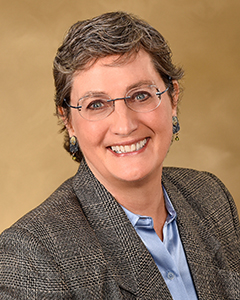Books published by William & Mary School of Education faculty in 2020
The following books were authored or edited by William & Mary School of Education faculty members and published in 2020.

Conceptual Frameworks for Giftedness and Talent Development: Enduring Theories and Comprehensive Models in Gifted Education
Co-edited by Tracy L. Cross, Jody and Layton Smith Professor of Psychology and Gifted Education and Executive Director, Center for Gifted Education & Institute for Research on the Suicide of Gifted Students; and Olszewski-Kubilius, P.
This book explores current and enduring theories and comprehensive models of giftedness and talent development. Each chapter covers a different model, including the Talent Development Model, Advanced Academics, and Evolving Complexity Theory. Each chapter includes a description of the model, theory, or framework; the most important practical, educational implications of the model, including underrepresentation and social justice issues; a summary of key points; and several discussion questions for use with students and professionals. The editors also consider common issues across conceptual frameworks, such as the degree to which achievement defines giftedness, the goal of gifted education, and the role of psychosocial factors. This is a comprehensive reference for scholars and practitioners in the field, as well as those studying at the graduate level.
Published by Prufrock Academic Press, Spring 2020 | More information

Equity in School-Parent Partnerships: Cultivating Community and Family Trust in Culturally Diverse Classrooms
By Katherine Barko-Alva, Assistant Professor of ESL/Bilingual Education, Socorro Herrera and Lisa Porter
Starting from the premise that children learn better when their learning community respects their families and cultures, this thought-provoking resource shows what it means — and what it takes — to include today’s diverse parents in their children’s learning. Moving readers away from out-of-date practices that can potentially marginalize and devalue the cultural assets of families, the authors provide practical, ready-to-use strategies to help schools re-envision the meaning of parental involvement and engagement. Based on the research and K–12 teaching experience of three educators, chapters address contemporary issues such as the absent parent, homework, vulnerable populations, limitations of current school-based family programs and pedagogies of hope.
Published by Teachers College Press, April 2020 | More information

Evocative Coaching: Transforming Schools One Conversation at a Time (Second edition)
By Megan Tschannen-Moran, Professor of Educational Leadership
"Evocative Coaching" (2nd Ed.) takes a person-centered, no-fault, and strengths-based approach to performance improvement. Bringing together research and wisdom in educational leadership and professional coaching, "Evocative Coaching" presents a simple yet profound model for facilitating new conversations in schools through LEAD: Listen, Empathize, Appreciate strengths and Design experiments. "Evocative Coaching" contains research-based theory, helpful strategies, specific suggestions and a wealth of anecdotes from coaches working in schools.
Published by Corwin, April 2020 | More information

Facilitating the Integration of Learning: Five Research-Based Practices to Help College Students Connect Learning Across Disciplines and Lived Experience
By Jim Barber, Clark G. and Elizabeth H. Diamond Associate Professor and Senior Associate Dean for Academic Programs, School of Education
Students’ ability to integrate learning across contexts is a critical outcome for higher education. Often the most powerful learning experiences that students report from their college years are those that prompt integration of learning, yet it remains an outcome that few educators explicitly work towards or specify as a course objective.
Given that students will be more successful in college (and in life) if they can integrate their learning, James Barber offers a guide for college educators on how to promote students’ integration of learning, and help them connect knowledge and insights across contexts, whether in-class or out-of-class, in co-curricular activities, or across courses and disciplinary boundaries.
Published by Stylus Publishing, June 2020 | More information

Leading for Tomorrow: A Primer for Succeeding in Higher Education Leadership
By Pamela L. Eddy, Professor of Higher Education, and Betty Kirby
When faculty climb the ranks into leadership positions, they come with years of knowledge and experience, yet they are often blindsided by the delicate interpersonal situations and political minefields they must now navigate as university administrators. What are the specific skills that faculty need to acquire when they move into administrative positions, and how can they build upon their existing abilities to excel in these roles? What skills can other mid-level leaders learn to help in their positions?
Using an engaging case study approach, Leading for Tomorrow provides readers with real-world examples that will help them reflect on their own management and communication styles. It also shows newly minted administrators how they can follow best practices while still developing a style of leadership that is authentic and uniquely their own.
Published by Rutgers University Press, June 2020 | More information

Psychoeducational Assessment of Preschool Children (Fifth edition)
By Bruce A. Bracken, Professor Emeritus of Education, with two co-editors
Psychoeducational Assessment of Preschool Children, Fifth Edition, provides academics and school-based practitioners such as psychologists, speech-language pathologists, and social workers with an up-to-date guide to the assessment of young children. Long recognized as the standard text and reference in its field, this comprehensive, skill-building overview is organized into four sections: foundations, ecological assessment, assessment of developmental domains, and special considerations. Chapters written by recognized scholars in the field cover theory, research, and application. This thoroughly revised new edition addresses current developments in preschool assessment, new policies and legislation, and student/family population demographics.
Published by Routledge, August 2020 | More information

Financing Education in a Climate of Change (13th edition)
By Robert Knoeppel, School of Education Dean, Vern Brimley Jr., and Deborah Verstegen
A user-friendly, practical examination of the issues impacting education finance today.
Retaining the practical tone and superior presentation that made the previous editions bestsellers, this new edition of Financing Education in a Climate of Change presents the most up-to-date information and material available in the dynamic field of school finance. Easy-to-understand tables and figures, thought-provoking end-of-chapter assignments, new chapter learning objectives, and practical budget and accounting examples help readers gain a firmer understanding of all facets of financing education. The 13th Edition adds information on classic and current topics, including the economics of education, recent court decisions, 50-state comparison tables, state taxes, and the ongoing debate about school vouchers, tax credits, church-state issues, and charter schools.
Published by Pearson, 2020 | More information

Integrating Spirituality and Religion Into Counseling: A Guide to Competent Practice (Third edition)
By Craig S. Cashwell, Professor of Counselor Education, and J. Scott Young
Guided by the framework of the ASERVIC Competencies for Addressing Spiritual and Religious Issues in Counseling, this comprehensive handbook for counselors-in-training and practitioners presents a variety of in-session spiritual interventions supported by scientific research. The authors take an inclusive approach to understanding client beliefs and formulate interventions that foster therapeutic growth in individuals from diverse backgrounds. Detailed case studies and questions for reflection throughout the text are appropriate for individual or group discussions. New chapters on ethics, forgiveness, and the integration of sacred texts in session reflect the evolving understanding of integrating spirituality and religion in the counseling process.
Published by American Counseling Association, 2020 | More information

Career Flow and Development: Hope in Action (Second edition)
By Spencer Niles, Professor of Counselor Education, Norman Amundson, Roberta Neault, and Hyung Joon Yoon
Career Flow and Development: Hope in Action introduces students to Hope-Action Theory, a model that emphasizes the centrality of hope in identifying positive career possibilities grounded in self-clarity emerging from systematic self-reflection. The book highlights how students can apply self-clarity to create a personalized vision of a future professional or educational career.
Based on leading theories of human behavior and organizational management, the Hope-Action Theory provides students with a dynamic set of tools that support and encourage effective decision-making. Readers learn how to leverage hope, self-reflection, self-clarity, visioning, goal-setting, as well as planning, implementation, and adaptation strategies, to guide their careers.
Published by Cognella, September 2020 | More information
Career Recovery: Creating Hopeful Careers in Difficult Times
By Spencer Niles, Professor of Counselor Education, Norman Amundson, Roberta Neault, and Hyung Joon Yoon
Career Recovery: Creating Hopeful Careers in Difficult Times provides readers with powerful strategies they can use to create hope and manage their careers throughout their lifetimes. The book introduces readers to the hope-action theory, an empowering approach that highlights the connection between hope, academic engagement, student retention, job search success, career goal clarity, and cultivating a meaningful career path.
In Section I, the text introduces the essentials of hope-action theory. The chapters illuminate the challenges of effective career self-management in a post-pandemic world and the importance of hope in career planning. Section II examines the crucial process of engaging in self-reflection to develop self-clarity. Readers uncover their unique passions, skills, personal styles, and values. Section III highlights the need for support in career and educational planning. It teaches readers how to move from self-exploration to seeking support and fostering future opportunities. The final section focuses on implementing key decisions and transforming possibilities into realities.
Published by Cognella, September 2020 | More information